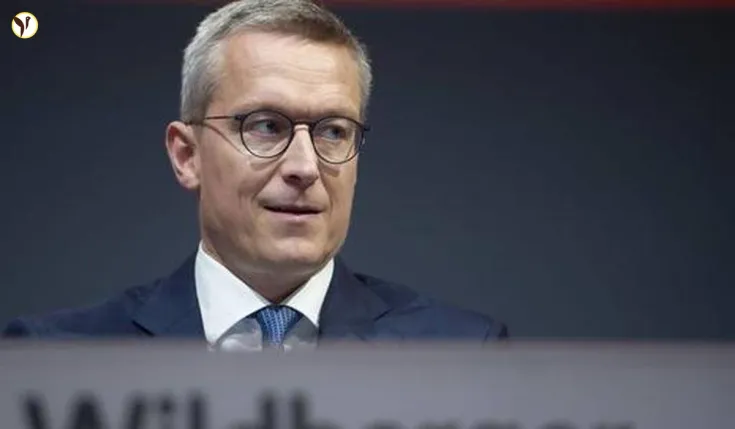Merz's Surprise Digital Minister: Karsten Wildberger Takes the Helm
In a surprising move that sent ripples through German politics, CDU leader and Chancellor-designate Friedrich Merz appointed Karsten Wildberger as Germany's first Federal Minister for Digitalization and State Modernization. This appointment, announced on [Date of Announcement], fulfills Merz's promise to bring in an outsider to spearhead the country's digital transformation. Wildberger, the former CEO of MediaMarkt/Saturn, brings a wealth of experience in managing large-scale operations and navigating complex digital landscapes.
Wildberger's Background and Vision
Wildberger's impressive resume includes leadership roles at T-Mobile, Vodafone, and E.ON, where he drove digital transformation initiatives. His doctorate in physics and his current experience managing nearly 1000 stores across Europe further underscore his capabilities. He expressed his commitment to uniting a team behind a cohesive strategy focused on technological sovereignty, with a clear European perspective. His vision for the ministry encompasses simplifying administrative processes and improving user-friendliness.
A Long-Awaited Ministry
The creation of a dedicated Digital Ministry enjoys broad public support, with a Bitkom survey indicating 71% of Germans favor the initiative. This reflects the growing recognition that centralized digital governance is crucial in today's technologically advanced world. While critics raise concerns about costs and potential overlap with existing ministries, supporters emphasize the unique challenges demanding a specialized focus.
Controversy and Cabinet Appointments
The appointment of Wildberger wasn't without its controversies. Initial discussions centered around potential female candidates from diverse backgrounds. However, Merz ultimately opted for Wildberger, prioritizing his managerial expertise. Alongside Wildberger's appointment, Merz unveiled other key ministerial selections, including Patrick Schnieder (Transport), Nina Warken (Health), and Katherina Reiche (Economic Affairs). The latter appointment sparked debate due to Reiche’s past controversial statements on LGBTQ+ rights.
A Pivotal Moment for Germany
Wildberger's appointment marks a pivotal moment. His success hinges on effective collaboration with businesses, government agencies, and the public. His task is immense – to lead Germany into a digitally advanced future. The establishment of this ministry signals a crucial recognition of digitalization’s role in modern governance, and the expectation is high for innovative and impactful initiatives under his leadership.






